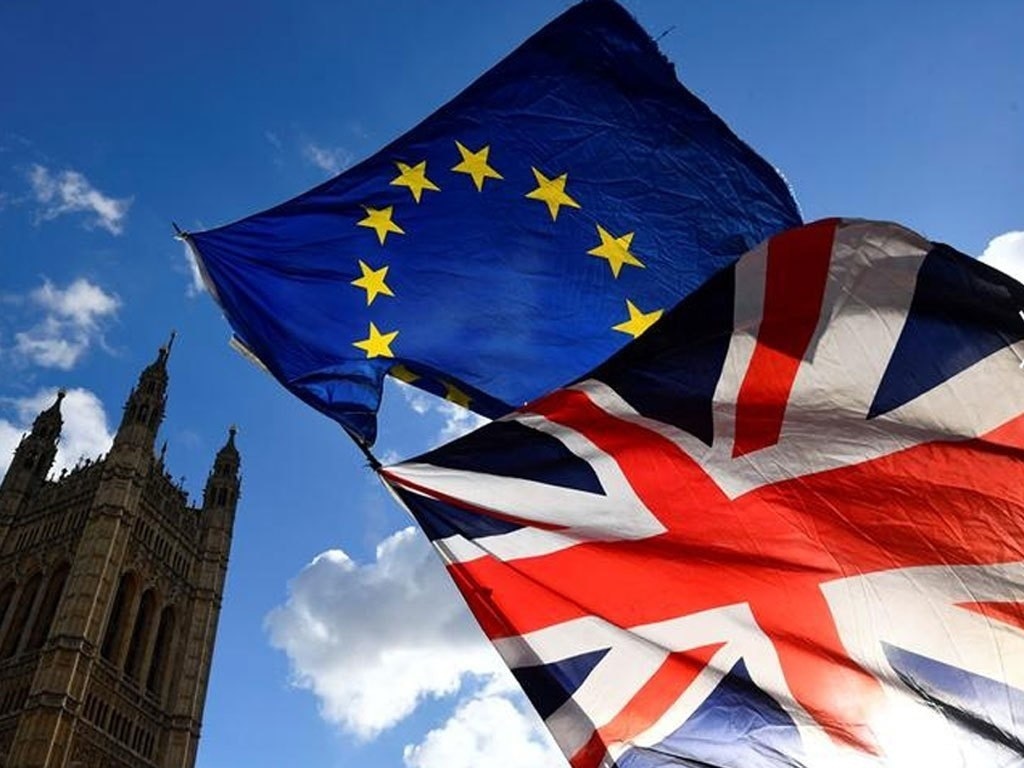Chief characters in Britain's Brexit saga
- Prime minister for six years from 2010, David Cameron called the vote on EU membership and led the so-called "Remain" campaign.
LONDON: Here are some of the key figures who have played pivotal roles in Britain's drawn-out Brexit saga, from the 2016 referendum on European Union membership to its eventual departure from the single market and customs union.
Nigel Farage
A eurosceptic member of the European Parliament and former leader of the UK Independence Party (UKIP), Nigel Farage campaigned to leave the EU for 25 years.
It was a surge in support for UKIP in the first half of the last decade that helped push then-prime minister David Cameron into calling the 2016 vote.
By focusing his campaign on mass immigration, Farage attracted controversy.
Following the surprise victory by the "Leave" side, he initially said he would withdraw from frontline politics.
But he returned in 2019, denouncing what he saw as a "betrayal" of Brexit under then-premier Theresa May.
Farage then founded the Brexit Party which stormed into first place in European Parliament elections in May last year.
But after Boris Johnson replaced Theresa May as prime minister, Farage found his new party marginalised.
It failed to win any seats in the 2019 December general elections, despite fielding around 275 candidates.
David Cameron
Prime minister for six years from 2010, David Cameron called the vote on EU membership and led the so-called "Remain" campaign.
When the country backed Brexit, he had little choice but to resign, admitting he could not be "the captain that steers our country to its next destination".
He told ITV that Johnson, by then prime minister, had never truly believed in Brexit and had told Cameron it would be "crushed like a toad" in the referendum.
Cameron has also insisted that he does not regret calling the vote, but deeply regretted the defeat of the Remain camp and the resulting divisions and crises.
Theresa May
Theresa May did not back Brexit in 2016, but emerged as the "safe hands" candidate to lead the governing Conservatives and become prime minister after Cameron's departure.
May vowed Britain would leave the single market and end freedom of movement.
But she was severely weakened after she opted to hold a snap general election in June 2017, which saw the Conservatives lose their parliamentary majority.
She subsequently faced near-constant rebellions and chastening defeats, and eventually stepped down as leader in July 2019 -- after parliament had rejected her Brexit divorce deal three times.
Boris Johnson
The former London mayor was a figurehead in the official Leave campaign, urging Britain to "take back control" from Brussels, where he was once an EU-bashing political correspondent.
Boris Johnson was then made foreign secretary by Theresa May, but his two-year stint ended when he resigned over her Brexit strategy.
Johnson retained a high profile, using his weekly column in The Daily Telegraph to attack May's approach, and was well-placed to take advantage when she eventually stood down.
He easily won a Conservative Party leadership contest, and then defied expectations by securing new divorce terms with Brussels.
He scored a thumping majority in 2019's general election on a pledge to "get Brexit done", promising he had an "oven-ready" deal.
Johnson had vowed to finalise trade deals with both the soon-to-be 27-member EU, and the United States, in 2020.
He defied naysayers by securing the EU deal -- albeit at close to the last minute on Christmas Eve -- but his promise of a transatlantic pact by the end of the year fell by the wayside.
Dominic Cummings
Dominic Cummings was the brains behind "Vote Leave" -- and was popularised by actor Benedict Cumberbatch in a TV dramatisation of the referendum campaign.
But his combative tactics and abrasive personality made him enemies across the political spectrum, and in November he was forced to leave as Johnson's most senior adviser.
His aggressive campaigning strategy, including an infamous Brexit campaign bus emblazoned with a questionable promise of funding for healthcare, made him a hate figure for Brexit opponents.
Former Conservative prime minister Cameron called him a "career psychopath", and he was unpopular with many MPs from the ruling party and even staunch Brexiteers.
Michel Barnier
Michel Barnier, the EU's chief Brexit negotiator, has been ever present in the process since Britain voted to leave the bloc, heading Brussels' team in the first phase of divorce talks.
The former French minister and veteran politician has been commended across Europe for his handling of the tricky and high-profile task and for keeping the other 27 members united behind his strategy.
The European Commission has asked Barnier -- an ex-EU commissioner well-versed in the mysteries of the bloc's law -- to remain in the post for the next stage of negotiations.





















Comments
Comments are closed.